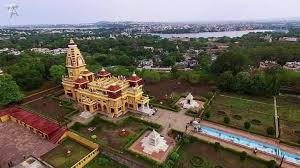The period of one-party dominance is finished. The 2024 general election results have led to the restoration of coalition administration in India. Because of poor performances in Uttar Pradesh and Maharashtra, the BJP’s vote total was cut to 240, 32 votes shy of the majority. The Modi 3.0 government would differ significantly from the previous two tenures of the BJP-led NDA, where allies played a minor role. The government’s stability relies on its supporters, including TDP leader Chandrababu Naidu and JD-U president Nitish Kumar, both of whom are capable of holding the government hostage.
Currently, both leaders have praised Prime Minister Narendra Modi and pledged to work together to attain the aim of a ‘Viksit’ Bharat. The Union Council of Ministers consists of 72 members, including 12 allies, five of whom hold Cabinet status. Except for the NCP, which refused to accept a minister of state position, all allies have joined the cabinet. To maintain continuity in government, Modi has relied on seasoned BJP leaders like Rajnath Singh, Amit Shah, Nitin Gadkari, Nirmala Sitharaman, and S Jaishankar. He has appointed former chief ministers Shivraj Singh Chauhan and Manoharlal Khattar to strengthen the administration. The new Council of Ministers includes members from all throughout India. The BJP has two representatives in Kerala: Suresh Gopi, a film star, who won the Thrissur seat, and George Kurian, a veteran party leader. Kurian’s appointment aligns with the saffron party’s efforts to increase its Christian vote share. Odisha and Karnataka both have strong participation.
The government has set plans for the first 100 days to begin the journey. The decision was made before to the election results, during the BJP’s excitement over the “400-paar” campaign. Coalition politics has taken hold. Modi will have to put aside difficult subjects like the Uniform Civil Code. The TDP supports the Muslim quota in Andhra Pradesh to better serve its constituency. For a stable government, the BJP must address hate speech and abandon its sectarian agenda.
Some JD-U members have called for a review of the Agniveer plan. Modi will need to consider all of these considerations. Modi, who has had unrestricted power since 2000 as Gujarat’s chief minister, will need to adapt to a new style of governance following his impressive victories in 2014 and 2019. The election results were heavily influenced by job creation and rising prices, rather than the Ram Mandir, which the BJP anticipated would tip the scales in their favour. After portfolio distribution, the next major problem is the election of the Speaker. The TDP is vying for the position, but the BJP is also determined to retain it. The TDP and JD-U are well-versed in the BJP’s history of fracturing alliances, as evidenced by Operation Kamal. As a result, the Speaker position would serve as protection against poaching attempts. The ruling party held the 17th Lok Sabha prisoner and effectively silenced the opposition. The 18th Lok Sabha has the potential to bring the government and opposition parties closer together.
Narendra Modi may learn from Atal Bihari Vajpayee, who led a successful coalition government by putting aside disagreements and considering allies’ perspectives. The NDA should establish a minimum programme and designate a convenor to address discrepancies. It is thought that a smaller government will be more humble and open to diverse perspectives. Modi 3.0’s journey will be exciting.
ABHISHEK VERMA




